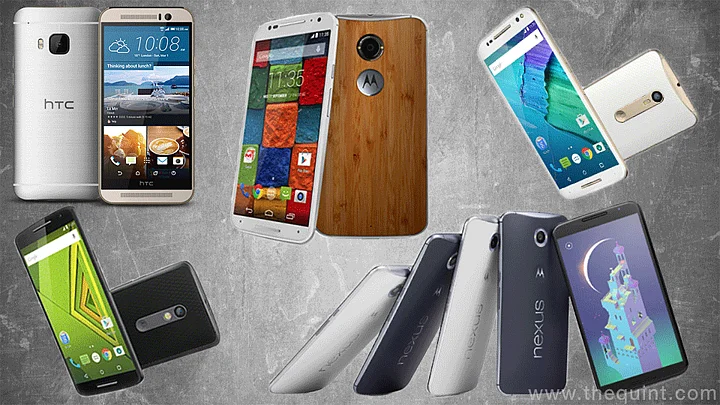Since the September of 2014, the Android smartphone scene took a hit when some of the most anticipated phones of the year turned out to be duds.
If you didn’t want an iPhone, there was literally nothing worthy enough to buy.
The Moto X 2nd Gen Failure
First, the 2014 Moto X was a giant step backwards compared to its 2013 counterpart – it offered a bigger screen for much less battery life and looked much uglier in comparison.
And yet it was priced higher than its predecessor. This was frustrating for people who were disappointed with the original Moto X and wanted the new version to fix its major gaffe, the camera. Well it didn’t, and as expected, no one attempted to buy this phone.
The Nexus 6 Shocker
Then, the single most anticipated phone on the other side of the Apple orchard fence, the new Nexus phone did something similar. It became bigger in size, bigger in price and smaller in value.
The Nexus 6 with its six-inch screen offset its buttery smooth stock android software with even worse camera and battery performance than the Moto X. Depressingly, the Nexus 6 veered away from the Nexus formula of economical pricing and was launched at a flagship phone price.
Naturally, no one bought this phone because why would anyone shell out flagship money for a mid-range performance?
The Samsung Galaxy S6 Disappointment
In March Samsung launched the S6 and the S6 Plus and finally replaced the terrible plasticky looks with metal and glass.
Yes the phones looked good and shot good photos, but for the sky high pricing they still suffered major drawbacks – the lack of an SD card, poor battery life and a non-removable battery.
For the end user giving away half a lakh to buy a phone, these are terrible sacrifices, and despite the sales numbers the S6 and the S6 Plus didn’t exactly become universal reccos.
Read the review of Samsung Galaxy S6 here.
The HTC One Debacle
The lesser said about the new HTC One, the better. The company did everything possible wrong, from totally not doing anything new design wise, to being unfairly sabotaged by the overheating Snapdragon 810, to turning their marketing into a laughing stock.
They are still marooned in the ditch that they dug themselves in.
Read the review of HTC One M9 here.
The LG G4 Screw-Up
LG joined the bandwagon and proceeded to disappoint with their own flagship, the G4. Granted the G4 fixed the G3’s issues by offering a great camera and a lovely curved screen, but the battery life and the physical design were atrocious. Those leather backs, no matter which color they came in, looked plain hideous, as did the LG UI.
Check out the review of LG G4 here.
It’s now the end of July 2015 and at last, there’s some light at the end of the tunnel.
The new phones from OnePlus and Motorola finally offer the correct balance of price, design and performance purely on specs.
At Rs 25,000, the OnePlus 2 is pretty much a no-brainer in the current competition. It’s got a 5.5-inch 1080p display, a 13 megapixel camera, a refreshed and allegedly non buggy version of the Snapdragon 810, a big 3300mAh battery with a fancy fingerprint sensor and a Type C-USB port. Those are amazing specs for the price, and even the Samsung and LG flagships don’t have those kind of battery sizes.
The two Moto X variants are pure beasts that take things even further. The Moto X Style has a 5.7 inch QHD screen and yet is smaller in size than the iPhone 6 Plus.
It’s got a 21-megapixel camera that the company says rivals the iPhone 6 in quality. It’s got 3GB of RAM, and a decent 3000mAH battery with quick charging, and it’s killer feature is supposedly its price, which will be only slightly more than the OnePlus 2.
The Moto X Play unleashes all kinds of tingling joy with its specs. It’s got the same camera module as the Style, but a more confortable 5.5 inch screen with 1080p resolution, and the battery is given a giant steroid push – a massive 3630mAh no less.
With that kind of battery power, with quick charging, and a less battery intense HD screen compared to QHD the X Play will probably power on for two whole days.
Both phones have micro SD slots, and the latter will probably redefine what a flagship phone means.
The advantage of the OnePlus 2 is that it launches in just a few days, while the Moto X’es will find themselves in Indian shores at least a month later and will probably cost a bit more.
But here’s what it actually means – that you can now finally buy a good Android smartphone.
(Mihir Fadnavis is a film critic and an obsessive gadget geek based in Mumbai.)
(At The Quint, we question everything. Play an active role in shaping our journalism by becoming a member today.)
